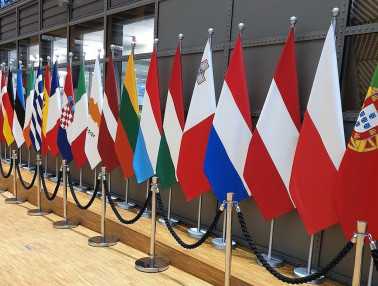EU defence policy directors meet to discuss Strategic Compass
Text: Ministry of Defence | 10:32 December 3, 2021On 2 December, the EU Defence Policy Directors held a meeting, where they discussed the first draft of the Strategic Compass, a document determining the future direction of European defence policies and capabilities.

“In the future, Europe will be able to manage crises arising in our security environment, if the Europeans want it. For the time being, the member states’ position is taking shape on ambitions related to European defence, but we can already state that we all support the idea that we need to do more in a more efficient way for the security of our continent. How much more? Well, this is what this debate is all about”, said Gergely Németh, Deputy State Secretary for Defence Policy at the Ministry of Defence, who represented Hungary at the meeting.
The deputy director for defence policy added that Hungary agrees with the development of stronger European synergies. Its National Security Strategy and National Military Strategy are both supportive of strengthening European defence. Moreover, the results of the armed forces development program make it possible for us to much more efficiently cooperate in joint operations and joint capability development than earlier. The procured military equipment creates the basis for critical interoperability, on which we can build in the future, too.
“One eternal limit of defence cooperation is that the only ones with whom we can take joint action against common challenges are those with whom we are able to lead joint foreign missions and develop joint military formations. Thanks to the capacity building of the last few years and due to the renewing pool of military equipment and the transformation of the Hungarian Defence Forces, the circle of these nations is continuously expanding”, added Gergely Németh.
At the meeting of defence policy directors, the Hungarian representative also said that the development of the defence of the European Union needs to be implemented as a process complementing NATO’s capabilities. We must avoid competition between the two approaches and work to achieve further results in the fields of NATO–EU cooperation. He also pointed out that the Western Balkans region continues to be of central importance to the security of Hungary, which must be reflected in the priorities of common European defence.